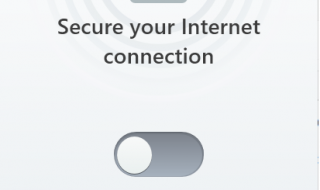Phone scams, unfortunately, have been around for decades and pre-date the online world, with scam calls from brokered lists being perpetrated long before the online world became possible or popular. The popularity of the Internet, however, and social media, in particular, has advanced the knowledge and breadth with which scammers can now employ phone scams on unsuspecting users. The primary targets of online phone scams are the elderly who live alone, unfortunately, as they can be vulnerable and lonely. They also can be more trusting and do not use the Internet as much and therefore are unaware of the types of phone scams that do occur routinely now.
Social Security scams and scams that target individuals via filing IRS (Internal Revenue Service), tax returns are becoming more common now, whereas romance scams, where the promise of love was employed are fading as more individuals become aware of these now. These new phone scams are very complex and very convincing, as the caller does pretend to be an agent from either Social Security or the IRS, and asks for information verification, which of course always includes your phone number. The IRS scam is most prevalent, as many individuals fear the IRS, and it includes mention of past-due taxes and/or penalties that an individual has accrued.

The IRS itself as well as all other government agencies can provide information on this latest phone scam and will allow users to report these types of attempted scams either online or via phone. Just simply visit IRS.gov to report this type of scam, or USA.gov, where all types of agencies for reporting are listed, even the FBI (Federal Bureau of Investigation). The FBI has a special section devoted to the phone and online scams, and a wealth of knowledge exists there.
In this latest type of scam, the caller starts out by identifying themselves as a deputy or agent with either the Social Security Administration or the IRS. This immediately causes panic in the recipient of the call and this is what the scammer relies on to achieve the goal of soliciting money or Social Security numbers from the call recipient. The government never calls and asks for personal information, instead sends letters when needed via postal mail. The government also never sends emails or text messages, but most individuals are unaware of this. Local governments have taken to posting about these scams in offline publications such as newspapers for those that are not tech-savvy which can include, of course, the elderly.
This type of government scam is complex and well-executed, as the phone number displayed can mimic the actual government agency phone number in the name displayed on the caller ID as well as the actual phone number. This is done via rerouting of numbers and gives the scammer relevance to the person they are calling. Some of these scam callers start out by offering to assist. They are kind and gentle in their mannerisms. This soon escalates to outright threats and intimidation once a person starts questioning the nature of the call or the identity of the caller. All government personnel have government-issued ID (Identification) numbers and asking for these can quickly aggravate the scammer who then, in turn, switches tactics to threats and intimidation, insisting on Social Security Numbers, personal bank information, or other methods of paying back what they claim is a government owed debt. The caller can call back many times throughout a day, week, or month, each time claiming to be another government agency and is quite vindictive when thwarted.
There are ways to protect yourself from the latest phone scams and information on where to report phone scams, as mentioned above, at most local, state, and federal government agencies. Not only are the government agencies aware of all scams including the latest that is mentioned in this article, but much coverage is given to all scams. Even the (FTC) Federal Trade Commission) has a plethora of great information since the scams are so rampant now. The first way to protect yourself from phone scams is by visiting all the government sites listed above and acquiring knowledge of the types of phone scams especially the current ones. Knowledge is power!
There are other methods to protecting yourself from phone scams of all types. Knowing where your information is listed online is a great way to find out how much danger you are in from scammere prevention of identity theft.
Another way you can protect yourself is to never divulge any personal information via a phone call, text, or email. No matter how official or threatening a phone call, text, or email is, or how real it seems, rest assured that no personal information should ever be given out online or via phone. Real companies, and real government officials, will send paper forms in the mail, even insurance companies and utility companies. These corporations and the government, even via phone, will only verify your identity with a password, or the last four digits of your Social Security number. Credit card companies also will only ask for the last four digits of your Credit Card number.
Shaming individuals into sharing personal information is a method that is used by scammers. Never fall for shaming, threats, intimidation on the phone. If you do not know the caller, even if the phone number looks local or familiar, hang up, do not speak, and contact any local, state, or federal agency concerning the call and report it immediately.



